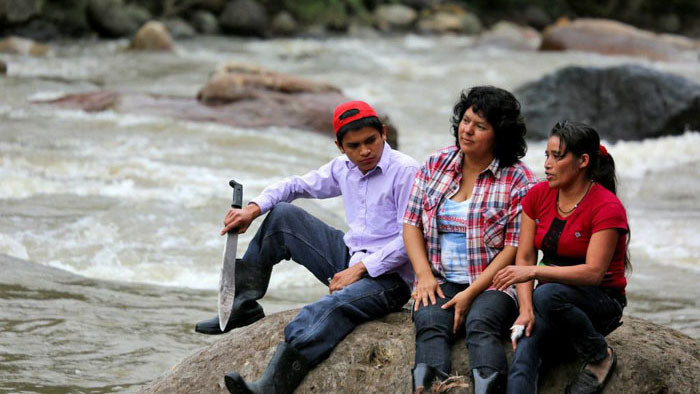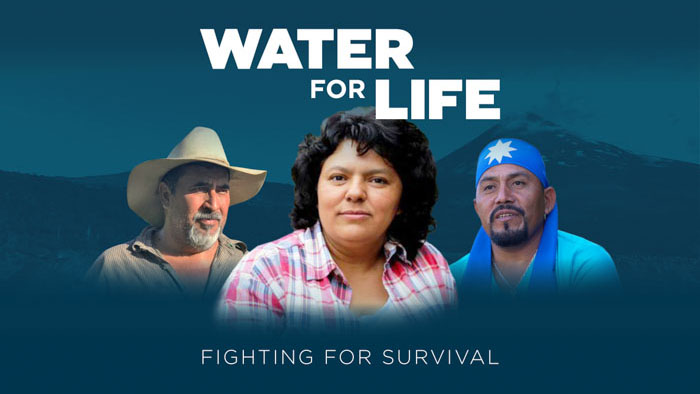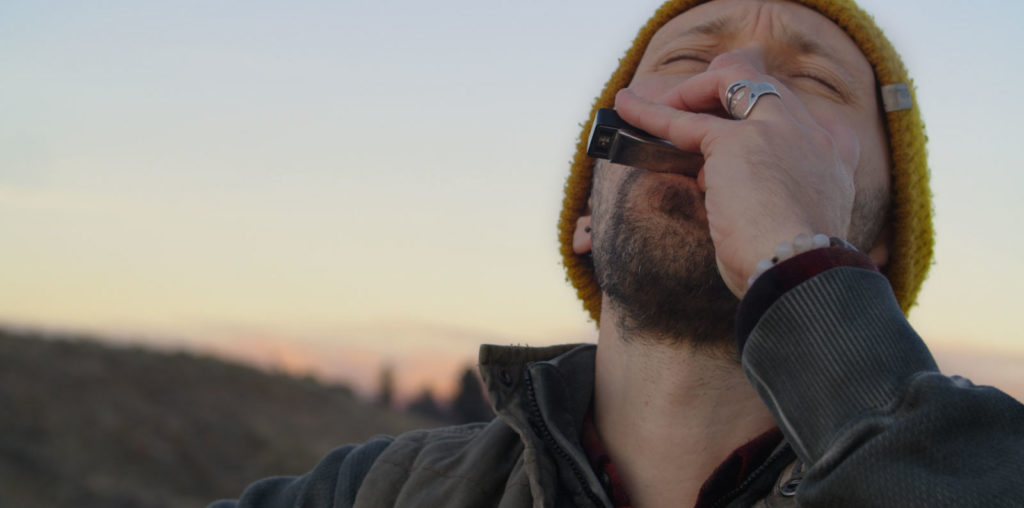
Over the years, I’ve found myself much more sympathetic to the men, women, and families working the land and living a much simpler life in contrast to the corporations invading small countries, taking their natural resources and empty promises of a brighter future. Will Parrinello’s documentary Water For Life makes me rethink many of the political issues in Central America that I grew up with in the 1980s. Still, ultimately, it’s about the rights of citizens to chart their own paths.
Water For Life takes us to Chile, El Salvador, and Honduras to explore some of the biggest water rights battles over the past two decades. In Chile, Alberto Curamil is the chief of the Mapuche people, who live along the Cautin River. In 2013, the Chilean government offered dozens of concessions for hydroelectric projects to convert energy from fossil fuels to hydroelectric. In Chile, water is a commodity, and corporate entities buy the rights to use water over the citizens who live along the rivers. The government enacted these projects without consulting the Mapuche and other indigenous people. Curamil and the Mapuche sued the government for violating their UN-sanctioned rights to “Free Prior and Informed Consent” and for inadequately addressing the project’s environmental impacts. The Mapuche’s struggle is based on their spiritual belief that the rivers, the land, and all living things are sacred and must be protected. The results of the lawsuit may surprise you, but Curamil’s sudden imprisonment for crimes he didn’t commit won’t.
Francisco Pineda is a subsistence farmer in El Salvador. His community relies on clean, abundant water to survive. In 2002, Pacific Rim was given a permit to explore for gold in Pineda’s community of San Isidro. They discovered a rich deposit in what became commonly known as the El Dorado gold mine. Pacific Rim promised environmentally friendly mining methods, but their efforts would have meant that much of the region’s natural water was contaminated with cyanide, lead, and arsenic. When Pineda’s anti-mining movement led to a presidential ban on all metal mining, he became a target of violent actors allegedly working for mining interests.
After Pineda’s anti-mining movement led to a presidential ban on metal mining, Pacific Rim sued the government of El Salvador for 350 million dollars in the World Bank Court for violation of CAFTA, the Central American Free Trade Agreement. Then Pineda became a target of violent actors allegedly working for mining interests.

“Cáceres led protests and demonstrations…her success resulted in her assassination.”
The last story is of the late Berta Cáceres, the leader of the Lenca people in Honduras, who took on similar forces hoping to build hydroelectric dams all throughout Honduras without a single consultation with the Lenca people. Cáceres’ only offense was creating roadblocks to stop construction. Simple and effective, but the government was not having any of it. Cáceres led protests and demonstrations, and the people stood by her to the point that the Honduran government began shooting demonstrators, killing many, which led Chinese investors to break contracts. Ultimately, Cáceres’ success resulted in her assassination.
As a documentary, Water For Life effectively tells a story that sympathizes with and highlights the work of its subjects. Growing up in the 1980s, I remember news stories about U.S.-backed military coups in these regions. Today, we see the results of our actions, mostly in how the government backs a coup and then sends corporations in to bring “prosperity” without considering its people. In these situations, it’s easier to pay off officials than sway an entire country.
Was Water For Life fair to both sides? The film’s subjects are portrayed as saints, and the corporate executives are seen as the villains. I will give props to filmmaker Will Parrinello for allowing the opposition to speak. I’m sure they think that making their country more prosperous, like the U.S., is a good goal, but unlike the U.S., that decision belongs to the people, and Water For Life makes that clear. The subjects want a voice in the discussion.
Water For Life offers a compelling and heartfelt look into the ongoing struggle for water rights in Central America. It sheds light on the tireless efforts of individuals who stand up against corporations and the often violent government corruption they are subjected to. Ultimately, it’s a documentary that reminds us of the power of ordinary people to defend their rights and the land they call home.

"…the subjects want a voice in the discussion."


